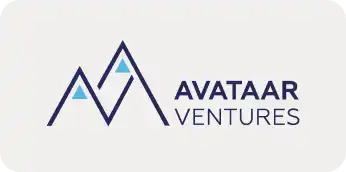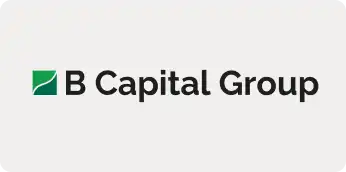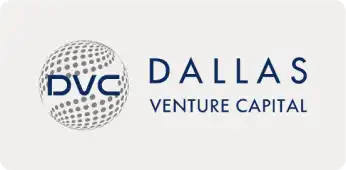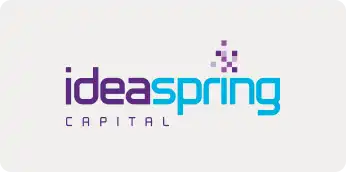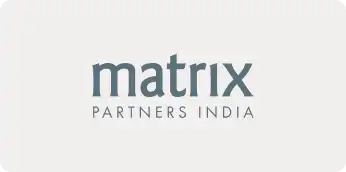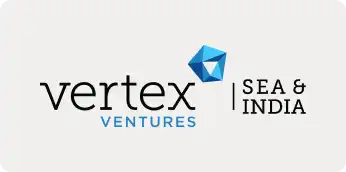Multiplier’s value prop (01:50)
Make global opportunities accessible for employees.
Multiplier enables workers to dream about and seize job opportunities anywhere in the world, even if they’re located in a developing country like India or the Philippines. As the founder puts it, “An employee could dream about working for an American company while sitting in India because Multiplier exists…” This is because they allow companies to hire internationally without opening entities in different countries, which can involve complicated legal liabilities and difficulties in shutting down operations if needed.
Provide cost-effective benefits for employees and employers.
“If you are on a Multiplier’s payroll, the insurance and benefits you receive are much better and more cost-effective for the employer because we purchase them in bulk…”
Useful for companies testing new markets
Multiplier is a valuable tool for companies wanting to test a new market without the expense and hassle of setting up a legal entity in that country. Sagar says, “…want to test out Columbia Market now? You won’t go and open a legal entity just to test out for one salesperson. It doesn’t make sense for you…So that’s the right setup for you to use Multiplier.”
Dealing with two main types of ICPs
Multiplier caters to
- Companies that want access to international talent without incurring overhead costs
- Individuals who apply for a remote position in a foreign company and suggest using Multiplier to simplify the employment process.
In both cases, the platform provides a cost-effective way to employ talent globally, potentially expanding horizons for both employees and companies.

Sagar’s story behind starting Multiplier and why it’s a SaaS business (16:15)
From orange farm to global SaaS superstar
Sagar grew up small Indian town known for its oranges. After working in Japanese investment banking and heading finance at a startup, he had a nightmare trying to set up businesses in Australia and Japan.
“So I was expanding, uh, to, uh, Australia. It took me eight months to open a bank account in Australia…So if setting up businesses in developed markets of Asia is so difficult, you can imagine how difficult it would be to do that in developing markets such as Indonesia, Philippines, and so on, so forth.”
It became clear to him that the world needed a better solution for going global, so he started Multiplier.
Sagar called his close friend Rohit to discuss his desire to start something of his own, with the idea of building a better payroll system. After bouncing ideas back and forth, they formed a team, raised funding, and started Multiplier. By working closely with early customers and understanding their needs, they developed a strong KYB (Know Your Business) and KYC (Know Your Customer) process, making deposits and cash flows more efficient, which in turn helped them scale exponentially.
Global talent crunch is real, and it’s driving businesses to go global.
Sagar points out that the global talent shortage is a significant problem, with a potential shortfall of 70 million skilled workers by 2030, leading to a possible revenue loss of $8.5 trillion. This shortage is forcing companies to look beyond their borders for talent.

Aims to simplify non-core functions in businesses.
Multiplier is like GCP or Azure, explaining that these platforms have replaced the need for large server infrastructure, which isn’t a core function of many businesses. He explains, “So what we are saying is multiplier is a business solution that will remove the need for you to have HR ops team that will remove the need for you to have legal entities, payroll teams, and so on and so forth.”
Sagar’s vision for making payroll an employee-driven phenomenon (21:14)
From complicated ADP to being employee-friendly
Sagar explained how he was motivated to start Multiplier after seeing ADP’s profits and dealing with their services in his previous company. He believes that ADP, though offering similar services, is like old-school enterprise ERP software, compared to Multiplier’s modern SaaS approach. Soon, Multiplier aims to displace ADP or even potentially OEM its platform to them.
Make payroll the last employee-driven experience in the workplace
Multiplier’s next vision is to focus on the global payroll market, even if a company already has an entity. The end goal for Sagar and his team?
How Multiplier deals with legalities and potential challenges in their business model (26:02)
Legal and Financial Responsibilities in Co-Employment
There is a lot of legal and financial responsibilities when it comes to co-employment. To protect themselves, Multiplier has a strong KYB (Know Your Business) and KYC (Know Your Customer) process. They also require companies to deposit up to three months’ salary in advance based on the notice period. He shares, “in case you default, we have that we can give the notice period to that person and pay that money even if you don’t pay us.”
Cash Flow Management
Sagar explains that they have a happy cash flow as they collect salary payments in the first week of the month and can demand more deposit from SMEs to protect themselves.
Having a strong product and tech background in building Multiplier’s platform (36:48)
Prove Your Product’s Worth Early On
Multiplier made initial sales through a founder-led approach. He and his co-founder Amritpal were doing demos and receiving large amounts of money from their first customers, which they perceived as a strong indicator of product-market fit. Sagar explains, “That’s where we realized that people, people felt comfortable doing business with us and sending us large amounts of cash. After looking at our platform, that’s where we thought now we should scale.”
Be Product-Centric from the Start
He recruited a co-founder and a CTO (Hiraash, who used to be an SVP of engineering at Lazada.) with strong product and tech backgrounds, and the startup went product-heavy from the beginning, backed by seed money. He states, “So we went very product heavy with first fundamental principles. Uh, and I’m very, uh, proud of what we have built.”
Utilize Investor Relationships for Growth
Sagar leveraged his relationship with Rohit at Sequoia to secure initial seed funding. Later, they successfully raised more rounds of funding as the business continued to perform well. As Sagar puts it, “Sequoia did our seed drown…then Sequoia does series A for us…We reach series B.”
How AI influences Sagar’s business and the impact of AI / GPT (39:27)
AI as a Support Tool, Not a Replacement
Multiplier, utilizes AI to deliver information about labor laws across 150 countries as quickly as possible. The AI assists Multiplier’s support and success teams internally to help customers with queries about local labor laws. This reflects a cautious approach to AI implementation, treating it as a tool that can improve and augment human work rather than replace it.
Government Revenue Sources are Tied to Employment
“If you think about any government in the world, right? Their revenue comes from two to three major sources. One is income tax, second is corporate tax, and third is your provident fund contributions.” There will always be an incentive for governments to maintain employment structures that enable these types of taxes
AI and gig economy
AI is going to disrupt the notion of employment, tossing more individuals into the gig economy – especially creative people. While AI can build software UIs and tell what works best, it cannot effectively learn architecture and physical design.

Sagar’s go-to-market strategy and their sales cycle for inbound and outbound leads (53:15)
In less than two years, Sagar grew Multiplier by initially focusing on outbound cold emails for inside sales. After hitting 1 million in revenue, they switched gears, concentrating on SEO and paid SCM to help the business scale. They largely driven by these inbound methods, using events and referrals to add to their business. Partnerships with companies like Robert Walters and Morgan McKinley helped boost sales further, evolving to focus on an outbound mid-market or enterprise sales approach, comping their sales team on revenue rather than the number of logos.
Different markets may require different sales strategies
U.S. market is their largest, accounting for 60-70% of their revenue. The sales cycle for inbound and outbound sales also differs based on the market, with outbound sales taking longer. Sagar explains, “Inbound sales cycle is roughly 45 days. 30, 45 days. Outbound is slightly larger.”
Location matters when building a SaaS company
Despite being a North Indian himself, Sagar believes that a successful SaaS company can only come out of Tamil Nadu, which is why he’s setting up his first office there. “I have a strong belief that you wanna build SaaS company, it can only come out of Tamil Nadu.”
A majority of the business comes from inbound sales
Despite using different strategies such as events and referrals, Sagar’s company found that most of their business comes from inbound sales. This suggests that creating a product or service that organically attracts customers can be more effective than outbound efforts. As Sagar put it, “70% of our leads come from that. But we are largely an inbound-driven company.”
Sagar on “The Ride of a Lifetime” by Bob Iger (56:09)
Interestingly, Sagar prefers reading books over podcasts. He recently read The Ride of a Lifetime by Disney CEO Bob Iger, a book he highly recommends, especially since he used to intern with Disney.
What Sagar envisions for the future of Multiplier and his dream of running a public company (57:10)
Seeing Girish’s take FreshWorks public and playing the Indian National Anthem seemed to be an inspiring moment for Sagar, giving him goosebumps.
Cultivate an executive-run company culture: He highlights the distinction between being a founder and a CEO, with the latter implying more accountability. “I promise it as a CEO, I don’t promise as a founder,” suggests that having a clear vision and taking responsibility for your company can drive success.
Sagar’s dream of running a public company
Sagar’s ultimate dream is to take his company public, similar to what FreshWorks did. He closes by saying, “That is something that is my dream. Uh, next two, three years, we going to launch a lot many products.”
Happy watching!





















